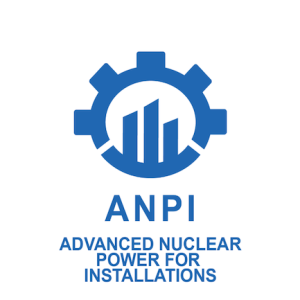As a last resort, Bulgaria could use the reactors built for the abandoned Belene NPP project to extend its Kozloduy NPP, Energy Minister Temenuzhka Petkova told BTV on 1 November. Officials have discussed the prospect with representatives of Russian state nuclear corporation Rosatom, whose export arm, Atomstroyexport, made the reactors, she said. However, reviving the Belene NPP is also an option. "There is investment interest in the Belene project itself. We are not ruling out either of the options," she noted. Petkova has reiterated the government's intention to carry out a "public and transparent" procedure to seek privatization for the Belene NPP, noting that two companies have already shown interest.
“At the moment, we are looking into all options for the development of Belene project. The first one is to accomplish Belene as a private project, without the participation and guarantees of the state,” she said. “The second one is to install one of the reactors built for Belene at Kozloduy NPP, and try to sell the other one.” She added that some BGN1.4bn ($795m) had been invested in Belene. “It has all the permits for construction and a green light for the project can be given very quickly,” she said.
Bulgaria unfroze the Belene NPP in the mid-2000s, but abandoned the project again in 2012, prompting Atomstroyexport filing a lawsuit for compensation against Bulgaria’s National Electricity Company (NEK). In June 2016, the International Court of Arbitration under the International Chamber of Commerce in Geneva ruled awarded Atomstroyexport €620m ($688m) over cancellation of the Belene project for equipment already manufactured. The Bulgarian parliament approved a bill on financial aid to NEK to pay the debt (although this decision must be also approved by the European Commission).
If the debt is fully paid before 15 December, Atomstoyexport agreed that it would not claim interest, which would will amount to €23m by that time.
“First, we will pay our debts to Atomstroyexport before December 15 and revceive the equipment,” Petkova said. “Then we will try to carry out the project as a private one. If this fails, we will take a different path.”
Kozloduy has all necessary infrastructure for installing the reactor built for Belene. “There are no technical problems here. This was also confirmed by our colleagues from Rosatom,” she added. The final decision on the project will be made after the markets for produced electricity, construction costs and potential revenues from a new power plant are analysed.
Meanwhile, Bulgaria's energy ministry on 25 October said life extension work on unit 5 at the Kozloduy NPP had been completed, enabling it to operate for an additional 30 years. The work was undertaken by a consortium led by Rosatom units Rosenergoatom and Rusatom Service and France's EDF. Rusatom Service is also upgrading the other reactor at unit 6, whose operating licence expires in October 2019.
"The two units of Kozloduy NPP produce 33% of Bulgaria’s energy, and extending their operation is one of the priorities in the energy sector," Petkova stated earlier. "Extending the service life of unit 5 and unit 6 will guarantee consumers access to electric energy at competitive prices. It will also guarantee the competitiveness of Bulgarian businesses," she said.






